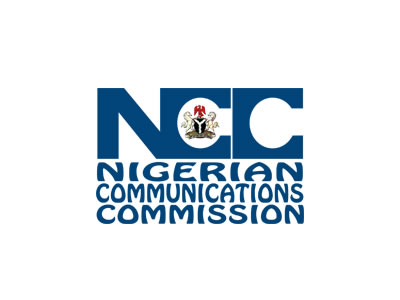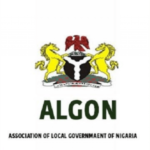The future ‘crude oil’ is believed to be data, as it is the ‘blood’ that drives technological development. Creating news story content involves the use of data; as users engage with the content, they generate additional data. This newly generated data is then employed to recreate content, forming the lifecycle of content creation intertwined with technology. Technology heavily relies on data; without it, survival is challenging, particularly for social media platforms, search engines, and AI technology.
Every day, the Nigerian media of news content in different formats, including text, speech, videos, and images. News outlets in Nigeria invest substantial resources in gathering these materials, disseminating them through traditional hard copy papers, online platforms, and broadcasting channels. Reproducing the content of these news materials without consent or establishing a commitment with Nigerian media publishers, either individually or collectively, is impermissible.
Tech giants frequently crawl the web pages of Nigerian media outlets to gather news content and reproduce it, which is why you encounter them in search engines like Google. Every day, I personally receive notifications of news stories published across Nigerian media outlets through Google.
Tech giants and different online platforms generate billions of dollars from news content produced by publishers worldwide, including materials from Nigerian media houses. Despite this, it’s important to recognise that these news items originate from the efforts of Nigerian news publishers, not the tech giants themselves. Nigerian media houses shoulder the costs associated with gathering and producing news content without receiving any share of the revenue generated by tech giants or other online platforms. Afterward, tech giants and other online platforms reproduce the news content from Nigerian publishers without any form of commitment or compensation.
- ‘Kidnap Kingpin’ Wadume receives heroic welcome in Taraba after jail term
- Man Utd hold Liverpool to hand Arsenal Premier League lead
It is estimated by FehrAdvice & Partner that Google generates $280 billion in annual revenue, with majority of the revenue originating from searches related to news content. Google’s search utilising media content accrues approximately $440 million in revenue annually.
The digitalisation of media has led to a substantial decline in revenue for traditional media advertisements for news outlets. Compensating news outlets for their content can help mitigate this loss and provide a much-needed revenue boost, potentially restoring balance to the industry.
Search engines operated by tech giants such as Google, Yahoo, Microsoft Bing, and others often display news content, stories originally published by Nigerian media outlets. This constitutes a significant concern that must be addressed by Nigerian media houses. One potential solution is for these Nigerian media houses to negotiate revenue-sharing agreements with the tech giants, mirroring similar arrangements observed in other countries worldwide. For instance, in 2022, France, Google and other tech giants engaged in agreements with media publishers to allocate specified funds to these news publishers.
In Australia, tech giants such as Google and Facebook have struck a deal with news publishers, both digital content and broadcasting, agreeing to pay A£115 million annually for access to news content. Legislation is in progress in the UK requiring tech giants to engage in negotiations with media publishers for financial compensation in exchange for content. If enacted, it is anticipated to generate over £250 million annually beyond the current figures.
Canadian publishers have already reached an agreement with Google, involving an annual payment of $73.6 million to feature news content in Google search results. Meanwhile, New Zealand, Japan, Indonesia, Brazil, and Switzerland are considering implementing a law compelling tech giants to compensate news publishers to retain their news content on search results or platforms.
Caxton, a South African media organisation, is pressuring Google to disclose the South African media data it utilises, along with the revenue generated from this data. The South African Competition Commission has launched an investigation into Google and Facebook regarding their utilisation of news content sourced from South African media outlets, looking into potential instances of unfair competition.
According to economic research frontiers, it is estimated that Google and Meta ought to compensate American news publishers annually within the range of 11 billion to 14 billion USD for the utilisation of their news content.
In 2023, Google introduced a support fund of nearly $10 million to subsidise digital content creators, including journalists. Nevertheless, local media outlets in Taiwan expressed skepticism about Google’s initiative.
In March 2024, reports emerged from France indicating that regulators fined Google £250 million for violating the agreement it had signed with news publishers in France regarding payment for reproducing news content sourced from French news media publishers. This incident marks another instance of Google facing fines in France for similar issues. In 2021, Google was fined £500 million for displaying webpages of news stories in web search results.
The European Commission imposed a fine of over €2.4 billion on Google for unfairly leveraging its dominance in search engines to gain an advantage in the market for product shopping comparison services.
Nigeria’s news media publishers must unite to push for fair negotiations with tech giants, urging them to compensate by at least £200 million for featuring their news stories in web search results. Virtually all major tech giant platforms display news stories sourced from Nigerian media in their search results.
Operating and sustaining news media outlets in Nigeria is exceptionally costly, intricate, and resource-intensive compared to countries where Google currently remunerates them with substantial sums. This is because Nigerian media houses must generate their own electricity, provide security, contend with persistent hyperinflation, procure equipment from abroad amidst unstable dollar exchange rate, among numerous other challenges not typically encountered in developed countries like France, Canada, Australia, etc.
Pressing big tech companies for compensation is often met with resistance by the tech giants, as seen in instances such as Australia, France and Canada. However, if stakeholders remain steadfast on their positions, they ultimately reach a mutually agreeable compromise to establish a balanced playing field. Nigerian media publishers should seize the opportunity to claim their millions of dollars from tech giants.
Chiroma is an Asst. Professor of Artificial Intelligence, University of Hafr Al Batin, Saudi Arabia, [email protected]

 Join Daily Trust WhatsApp Community For Quick Access To News and Happenings Around You.
Join Daily Trust WhatsApp Community For Quick Access To News and Happenings Around You.


